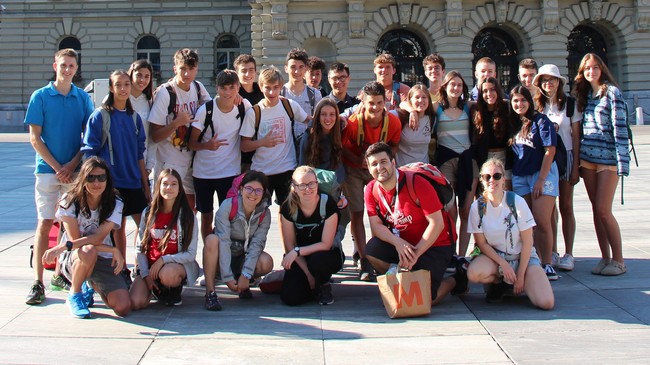
Jazz in Switzerland (Vol. 4)

On the road to emancipation in the years from 1974-1980 jazz was obliged to exist on the fringe. Not only of success but also of public recognition. Switzerland did not escape this worldwide development in the evolution of jazz.
But, in the end, the outcome of these events was perhaps positive after all. In the sense, that the modernists had, slowly but surely, to develop their own identity. While traditional jazz enthusiasts were predominantly amateurs, the newcomers strove at one and the same time to achieve a level of professionalism as well as a measure of recognition.
Most jazz musicians of the period were self-taught but, as George Gruntz recalls, they took night classes in the new music by listening religiously to Willis Conover’s broadcasts on the Voice of America.
Nevertheless, their desire to assert loud and clear their new status as musicians, initially in the shadow of their American idols and then, quite swiftly for a number of them, as players with their own musical identities, brought them a level of inspiration and confidence which led to the foundation of the first jazz schools, which soon offered an interesting curriculum, and to the establishment of the first clubs to present Swiss musicians on a regular basis.
The Montreux Jazz Festival and the Swiss Broadcasting Corporation SBC
In fact, the Montreux Jazz Festival, inaugurated in 1966, played a very important role for the French-speaking part of Switzerland.
Co-produced by the SBC during its early years, the festival provided excellent stage facilities for the presentation of contemporary and avant-garde groups in which Europe’s stars of the future played and which also offered Swiss musicians an opportunity to become known beyond their own borders.
The SBC gave the opportunity to the Orchestra of Radio Zürich, the Groupe Instrumental Romand (G.I.R. or French-Swiss Radio Light Orchestra), and the Jazz-Live Trio to accompany numerous foreign musicians when on tour in Switzerland.
The SBC also was increasingly opening its studios to Swiss musicians for whom it co-produced recordings. Hitherto very limited, the production of Swiss recordings soon reached a level which was more appropriate to the growing potential of the artists concerned.
But during that protracted battle to seek both greater recognition for jazz and the means to help jazz assert itself, groups of musicians and activists came into being, and in 1974 there was something of a revolution in Geneva with the foundation of the Association for Encouragement of Improvised Music, soon after to be known as the AMR, which was accorded a public subsidy.
Production information
Jazz in Switzerland Volume 4 (1997). Musica Helvetica MH CD 110.2. Produced for SRI by Christian Strickler. Music selected by Bruno Spoerri.

In compliance with the JTI standards
More: SWI swissinfo.ch certified by the Journalism Trust Initiative
















![The four-metre-long painting "Sonntag der Bergbauern" [Sunday of the Mountain Farmers, 1923-24/26] had to be removed by a crane from the German Chancellery in Berlin for the exhibition in Bern.](https://www.swissinfo.ch/content/wp-content/uploads/sites/13/2025/12/01_Pressebild_KirchnerxKirchner.jpg?ver=cb688ed5)














You can find an overview of ongoing debates with our journalists here . Please join us!
If you want to start a conversation about a topic raised in this article or want to report factual errors, email us at english@swissinfo.ch.